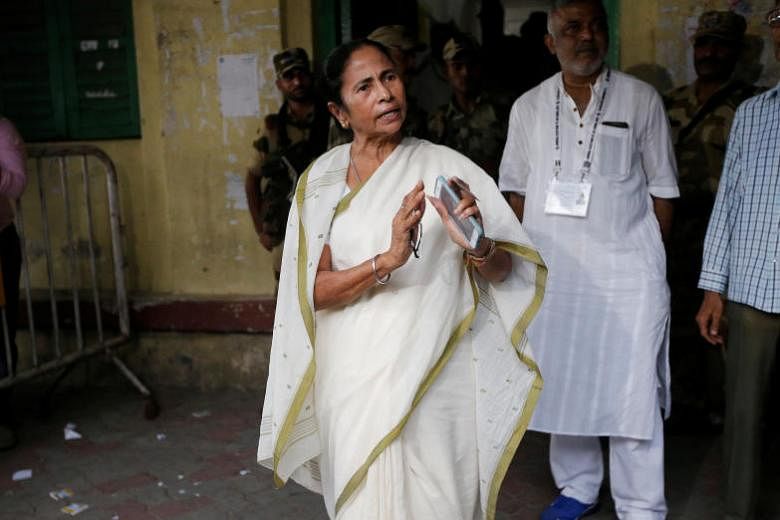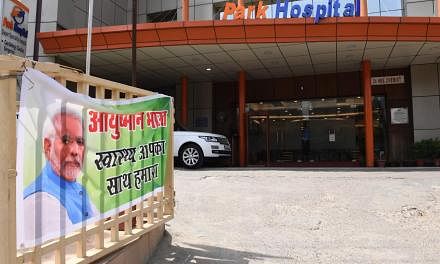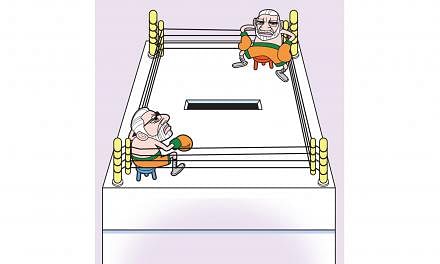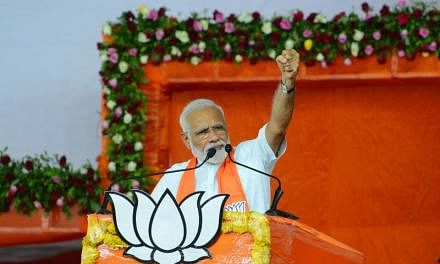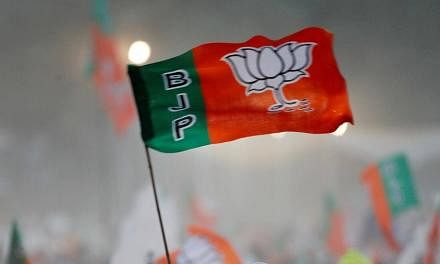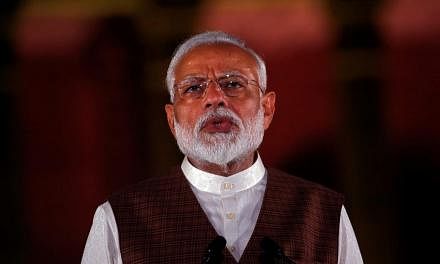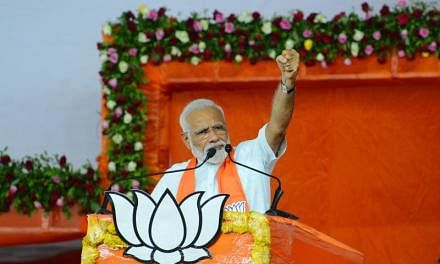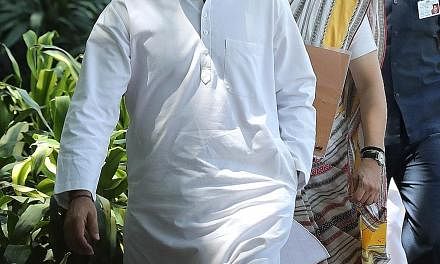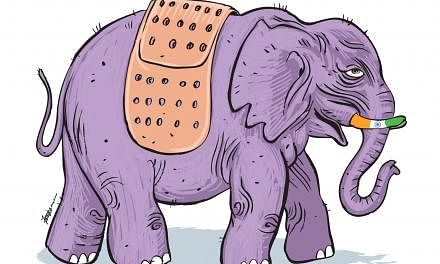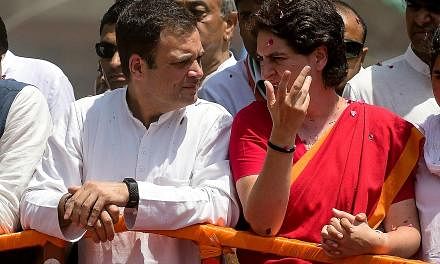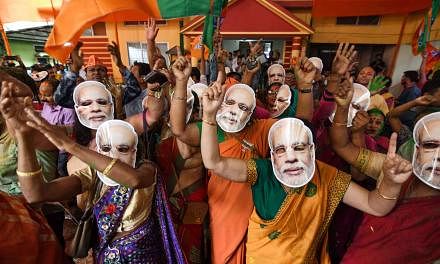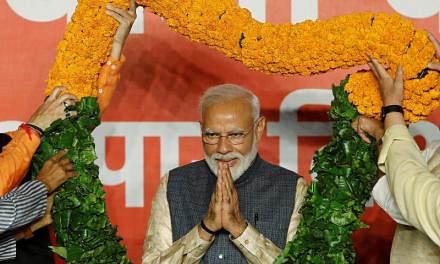NEW DELHI - Cornered Bengal tigress lashing out fiercely - that is how an article in The Times of India newspaper described the chief minister of West Bengal state, Ms Mamata Banerjee.
With the seven-phase Indian parliamentary elections drawing to a close on Sunday (May 19), the outcome of the political duel between her regional faction, the All India Trinamool Congress, and the Bharatiya Janata Party (BJP) will play a key role in deciding who comes to power when results are declared on Thursday.
Violence has marked every phase of the contest between the Trinamool Congress, which won 34 of 42 seats in West Bengal in the 2014 General Election, and the BJP, which won just two. This time, however, the latter unleashed an all-out campaign to ensure a significantly higher haul than in 2014.
Prime Minister Narendra Modi addressed 17 rallies here - the highest in any state after Uttar Pradesh. BJP president Amit Shah too pitched in with a roadshow in the West Bengal capital, Kolkata, last week, which was when clashes between supporters of Trinamool Congress and BJP erupted.
Mr Shah has claimed his party will win 23 seats in the state this time. Exit polls released last night indicated the BJP will win around 14 seats and the Trinamool Congress, 24. Another two are expected to go to the Congress party.
BJP's heavy focus on West Bengal is a sign of the party's search for new political ground beyond its stronghold in the Hindi heartland, where it fears opposition parties will eat into its 2014 haul.
While the Congress won state elections last December in Rajasthan and Madhya Pradesh, pitching it as a strong competitor in these two states, a new alliance of three key regional parties in the state of Uttar Pradesh threatens to trim down the BJP's impressive haul there the last time around. The three states of Uttar Pradesh, Rajasthan and Madhya Pradesh accounted for 123 of the 282 seats it won in 2014.
With the largest share of parliamentary seats after Uttar Pradesh (80) and Maharashtra (48), West Bengal occupied a central position in the BJP's 2019 battle strategy. Unlike in other key states such as Maharashtra, Tamil Nadu and Bihar, the BJP did not contest the polls in West Bengal with local alliance partners.
This pitted the might of the BJP solely against the Trinamool Congress in the state. The former roped in many defectors from different parties, even naming two former Trinamool Congress members of Parliament as its candidates. The bitter rivalry aggravated tensions in a state already infamous for its culture of endemic political violence.
Clashes between the two parties' supporters even led the Election Commission of India to take an unprecedented decision to cut the election campaign by 20 hours, till 10pm last Thursday instead of 6 pm the next day.
The Hindu right wing has historically never been a dominant force in West Bengal but, over the last few years, the BJP has made inroads, grabbing territory ceded to it by the Communist Party of India (Marxist) and absorbing some of its foot soldiers. From just 6 per cent in the 2009 parliamentary election, the BJP's share of votes grew to more than 17 per cent in 2014.
Political analyst Biswanath Chakraborty told The Straits Times this may go up to as much as 35 per cent this year. "But this is more of a negative and an anti-Trinamool Congress vote rather than a positive vote in favour of the BJP," he says.
Mr Tarun Ganguly, another Kolkata-based political analyst, too thinks the BJP will do better than in 2014, listing possible reasons such as anti-incumbency against Ms Banerjee and the state government as well as lack of employment opportunities.
"This has led to politics in the state becoming much more criminalised than what it was five years ago. It has not gone in favour of the ruling party, even if others too are indulging in it," he says.
While the Trinamool Congress has relied on Muslims, who account for close to 30 per cent of the state's population, the BJP has sought to rally Hindu support, especially among the sizeable non-Bengali population, by portraying its opponent as pro-Muslim. This has been bolstered through campaigns that allege Hindu religious rights are being curbed in West Bengal and that the Trinamool Congress has passed on special benefits to Muslims.
The BJP has also promised to give citizenship to Hindu and Buddhist refugees, as well as identify illegal residents in West Bengal and deport them, a promise that is more of a dog whistle intended to target Muslims in the state.
Under attack from the BJP, Trinamool Congress has sought to distance itself from fundamentalist leaders in the Muslim community and pitch the battle with the BJP as one between Bengalis and non-Bengalis from outside the state.
